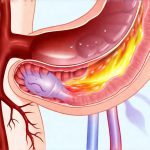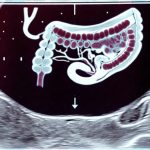Irritable Bowel Syndrome (IBS) is a common gastrointestinal disorder characterized by abdominal pain, bloating, gas, diarrhea, and/or constipation. These symptoms can significantly impact quality of life, leading to discomfort, anxiety, and limitations in daily activities. While the exact cause of IBS remains elusive, it’s increasingly recognized that underlying factors beyond dietary sensitivities or stress play a crucial role. One such factor gaining considerable attention is Small Intestinal Bacterial Overgrowth (SIBO), often appearing as a significant contributor or even co-occurring condition with IBS.
The relationship between IBS and SIBO is complex and bidirectional – meaning one can cause the other, and vice versa. Understanding this connection requires delving into the normal functioning of the gut, how bacterial imbalances occur, and the diagnostic challenges associated with both conditions. This article aims to explore the nuances of IBS and its link to SIBO, providing a comprehensive overview for those seeking more information about these often-debilitating conditions.
Understanding Irritable Bowel Syndrome (IBS)
IBS isn’t a single disease but rather a functional gastrointestinal disorder. This means there’s no visible damage or inflammation in the digestive tract when investigated through standard tests like colonoscopies. Diagnosis relies heavily on symptom criteria, such as those outlined in the Rome IV diagnostic guidelines. The precise mechanisms behind IBS symptoms are still under investigation, involving factors like visceral hypersensitivity (increased pain perception), altered gut motility (how quickly food moves through the system), and brain-gut axis dysfunction (impaired communication between the digestive system and the brain).
IBS presents differently in individuals; some experience primarily diarrhea (IBS-D), others constipation (IBS-C), and still others a mixed pattern (IBS-M). Symptoms can be triggered by various factors, including diet, stress, hormonal changes, and certain medications. Management typically involves dietary modifications, lifestyle adjustments, and symptom-specific treatments.
The Role of Small Intestinal Bacterial Overgrowth (SIBO)
The small intestine normally contains a relatively low number of bacteria. However, in SIBO, there’s an excessive amount of bacteria present – often the types that belong more commonly in the colon. This overgrowth can disrupt normal digestive processes and lead to various symptoms. Several factors can contribute to SIBO, including problems with gut motility (slow movement allowing bacterial buildup), structural abnormalities in the small intestine, or compromised immune function.
How SIBO Contributes to IBS Symptoms
The bacteria in SIBO ferment carbohydrates in the small intestine, producing gases like hydrogen and methane. These gases can lead to bloating, abdominal distension, and altered bowel habits – all hallmark symptoms of IBS. Furthermore, bacterial metabolism can damage the intestinal lining, leading to malabsorption of nutrients. This malabsorption can further exacerbate digestive issues and contribute to deficiencies. The presence of bacteria also impacts gut motility, potentially worsening constipation or diarrhea depending on the specific circumstances.
Diagnosing SIBO: Challenges and Methods
Diagnosing SIBO isn’t always straightforward. The “gold standard” test historically used was a jejunal aspirate and culture, but it’s invasive, costly, and doesn’t necessarily reflect bacteria throughout the entire small intestine. Currently, breath testing is the most common non-invasive method. It measures hydrogen and/or methane levels in exhaled breath after consuming a specific sugar solution (typically lactulose or glucose). Elevated gas production indicates bacterial fermentation, suggesting SIBO. However, breath tests can have limitations including false positives and negatives.
Treatment Approaches for SIBO and IBS Connection
Treating SIBO often involves addressing the underlying cause and reducing bacterial overgrowth. This might include dietary changes (like a low-FODMAP diet to reduce fermentable carbohydrates), antibiotics or herbal antimicrobials, and prokinetic agents to improve gut motility. It’s crucial that treatment is guided by a healthcare professional as self-treating can be harmful. Simultaneously managing IBS symptoms with strategies like stress reduction techniques, fiber adjustments, and potentially psychological therapies can provide holistic relief. Recognizing the interplay between SIBO and IBS is essential for effective long-term management.
It’s important to note that this information is intended for general knowledge and informational purposes only, and does not constitute medical advice. It is essential to consult with a qualified healthcare professional for any health concerns or before making any decisions related to your health or treatment.


















